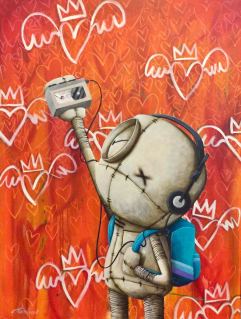HELLO WORLD!
So I’m fresh out of studying theology. I’ve been on this endeavor for about the past 4.5 years and literally I’m in it everyday. So I’m straight up done with that conjecture war and moving on to computer science. I will still engage in conversation and my mind won’t stop thinking about God and how to change the world but I can say for sureeeee there is no more theological treaties or major Bible doctrines I will be getting into. Probably the last book I will read focusing on “the Bible” is Rob Bell’s book called “what is the Bible”. I will side step out the door, exiting on the progressive/liberal side of Christianity where I now head into computer land.
Most millennials my age (30) grew up with computers evolving every year or so. And in interacting with all the latest and greatest gear, you either learn a thing or two or need to unlearn a thing or two about computers, most likely both, as is the case with myself. 😂 Soooo, I am barely starting to learn about computer science, (like literally barely, I’ve been binging on free courses online offered by Harvard for about 4 days straight) and what I have learned so far is you have to learn about how the equipment functions which is the hardware, first. So in doing this I realized (definitely theopneustos🤥 ) the hardware is owned and marketed by companies. Companies distribute the equipment and the stories of the equipment and why you need it; to the consumer. This is why cats get degrees in marketing science — to strategically come up with the best stories, with the best languages, and the best symbols to tell the consumer.
BOOM! The field of consumerism is born.
Consumerism seeks to give you an experience in exchange for your time and money, offering pleasure and an alternative cure to boredom.
Consumerism is just like a religion they tell you a story about something in the real world in order for you to have an experience.
An example of this is with the supposed battery estimates that PC or Macs will tell you about their laptop products. For example , one story goes like this: They say it’ll last 15 hours without a charge. They say you can take all kinds of pictures and make many memories and share them all with every one on social media.
We all know in the real world from experience, that none of our laptops last this long on a single charge. This is because they probably did the test in some nice chilled room with the brightness on low, running one program at a time… They most likely weren’t taxing the processor and heating up all the components in order to play music and watch videos and run multiple programs in the background…. this is why we go to Consumer magazines or PC communities where we speak to real people who have made real reviews of the claims by interacting with the product in the real world.
Here you’ll find actual on the ground information about how long the battery life lasts while doing real-world tasks.
Similarly in theology, some people tell you stories and dogmatize ideas and ritualize practices… some of these stories we believe until we actually try them on so to speak, and figure out in the real world they don’t work as well as advertised.
This is why we [need to] build communities of people who have really interacted with these ideas and deconstructed all the way to the core and can tell you that these ideas are not exactly where you’ll find what you’re looking for.
In the same way that computers are programmed with the binary language of ones and zeros only, theology programs people into black and white thinking only.
The dark and distant cousin of consumerism is religion. Religion’s Father Tribalism is the root of division. The Grandpa of consumerism is Fear. Religions tells us stories [which we all do, even without religion], in hopes that we can have an experience with The Mystery and also more practically important is the ability that religion provides inorder for humans to build a community. This is why i am not talking bad about religion, it has helped us greatly and taught us many lessons to learn. The main lesson to learn is the power of community.
Communities lead to teamwork
Just like computer use teamwork so to speak, where one mechanical part can do very little in comparison to its whole. Many mechanical parts, doing many different tasks, all different shapes and sizes, giving rise to the possibility for accomplishing a complex series of task.
When a community is built the possibly for greatness through cooperation arises.
This is where the world can be effected and affected. It all depends on the intent and the intent is fuelled by the stories one tells oneself. This is why we must strive to co-create inclusive, transparent, and diverse communities.


July 16, 2017 at 8:17 am
A quote from my blog:
I was talking to my grandson last year when I realised that my life has consisted of two quite separate journeys. There was the Christian Journey and there was the world of a computer programmer and business analysis (very analytical and methodical) that started in 1967. These journeys only really came together when I was made redundant again in 1990.
Then in 1995 I was ‘forced’ to reconsider just about everything I had ever been taught about the Christian RELIGION – as a result of which I see myself as having been an outside observer of Evangelicalism (especially in America) with its emphasis on FEAR, GUILT and SHAME, for over 20 years.
LikeLike